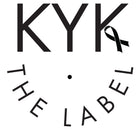Should I have a Bilateral Mastectomy?
By Dr Kate Stringer
Surgeon from Brisbane Breast & Endocrine Surgeons
Breast surgeons are commonly asked this question. Being diagnosed with breast cancer is devastating and it is natural for some women to want to do everything to reduce the chance of cancer returning or ever occurring again. The decision to undergo bilateral mastectomies is a big one and there are many things to consider when making the decision.
For the majority of breast cancers a mastectomy is not necessary. Breast conservation with removal of the cancer (Lumpectomy or Wide local excision) and Radiotherapy has an equivalent outcome to mastectomy in most women. Some women require a mastectomy because of the size of their cancer or the presence of more than one cancer.
It is important to know that statistically the risk of having breast cancer in your other breast at the time of your diagnosis is <2.5%. The risk of developing breast cancer in the other breast after diagnosis is <1% per year. For most women the biggest risk to their health is the first breast cancer with which they are diagnosed. If breast cancer returns it does so in other parts of the body (metastasis) and not in the other breast. This means that removing the other breast is not going to improve survival.
For the majority of women bilateral mastectomies are not necessary. The main reasons that your surgeon may recommend bilateral mastectomies are if you have cancer in both breasts, a strong family history, or if there is a known genetic mutation. In these situations there is a higher risk of developing a new breast cancer.
Another consideration is that having bilateral mastectomies is a bigger operation than a single mastectomy and much bigger than a lumpectomy. With this bigger operation comes increased risks, such as infection, bleeding or prolonged wound healing. These potential complications (although uncommon) could delay the delivery of other required treatments such as Chemotherapy or Radiotherapy. It is important to focus on treating your breast cancer first. After treatment, the other breast can be removed at a time that doesn’t affect your breast cancer treatment.
All breast cancers and all women are different and decisions about appropriate treatment are individualised. After the initial shock of diagnosis has passed you should take time to gather information and consider all your options. It is very important to talk to your treating team about your circumstances to determine the best treatment.
To book a consultation with Dr Kate Stringer contact Brisbane Breast and Endocrine Surgeons operating at Wesley Hospital, St Vincent’s Northside Private Hospital and North West Brisbane Private Hospital.



Leave a comment